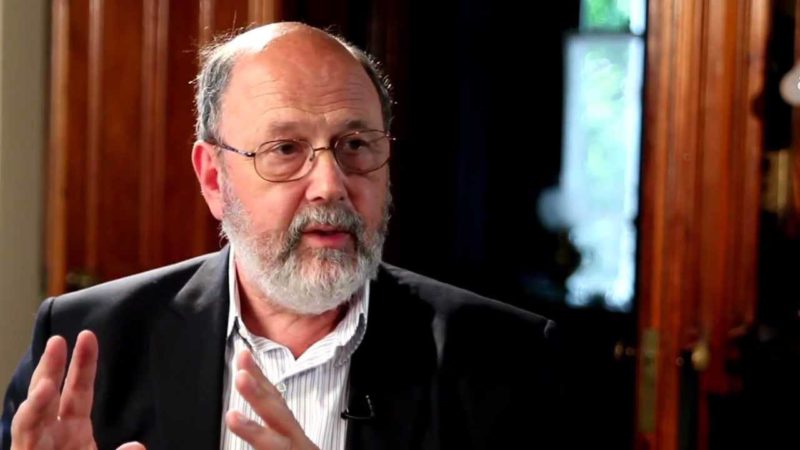Part 1, The Song of the Remnant, ended like this:
“The health, welfare and flourishing of a people is dependent on the nation having a solid foundation. Saul and his government were unrighteous. The foundations of a lawful and just government were destroyed. When the foundations are destroyed chaos follows; and then comes tyranny.
“This is the season in which David lived and it is season the West is in today. The foundations of Judeo-Christian theism that created Western Civilization have been destroyed by the worshippers of man. The West as we have known it is dying.
“What can the remnant do in this situation? David’s fearful friends had made their argument: flee to the hills. Now David will answer their challenge. Will David flee to the mountains? Or somewhere else?”
Now, the conclusion of this two-part post, and of this series on the remnant. …
David explains why he trusts in God
David flees to God, his refugee!
4 The Lord is in his holy temple;
the Lord’s throne is in heaven;
his eyes see, his eyelids test the children of man.
When a nation’s foundations are destroyed the righteous will remember that “The Lord is in his holy temple; the Lord’s throne is in heaven.”
This is stability! While the foundations are being destroyed, the reality of God and His presence is the one thing that anchors all. God is the King of kings, the Lord of lords. He is sovereign over heaven, earth, and hell (Ps 139:8). God’s throne is unshakable and God himself is present in David’s life.
God sees the children of men. His gaze distinguishes between the righteous and the unrighteous. He loves the former and hates the deeds of the latter. In verses 4-7, God responds differently to each:
- 5a,7 He tests and loves the righteous
- 5b-6 He hates and punishes the wicked
Let’s look at these in turn.
5 The Lord tests the righteous,
but his soul hates the wicked and the one who loves violence.
The Lord does not hate the remnant. Rather, He tests them to prove their nature and grow their character. No one has said that the remnant will not face problems. They will suffer consequences for their righteous behavior in a society that is wicked and unjust.
 In his commentary on Revelation, N.T. Wright speaks of the remnant people at the end of history.
In his commentary on Revelation, N.T. Wright speaks of the remnant people at the end of history.
The God-given and God-protected vocation to bear faithful prophetic witness will not mean that one will be spared from suffering and death, but rather that this suffering and death itself, like that of the Jesus whom the church worships and follows, will be the ultimate prophetic sign through which the world will be brought to glorify God.
It is through the fire that we are purified. If we are trusting in God, we need not fear the outcome. And it is through the faithful witness of the righteous remnant that the Lord’s Prayer will come to its beautiful fruition – “thy kingdom come, thy will be done on earth as it is in heaven.” Or as Revelation states, when the righteous remnant have completed their prophetic suffering then “the kingdom of the world [will have] become the kingdom of our Lord and of his Christ, and he shall reign forever and ever” (Rev. 11:15).
In contrast to God’s love for the righteous remnant, He hates the wicked and the one who loves violence. The eyes of the Searcher can distinguish between the wicked and the righteous. He can distinguish between their hearts and their behavior. He loves the former and hates the later.
6 Let him rain coals on the wicked;
fire and sulfur and a scorching wind shall be the portion of their cup.
As there may be consequences for the righteous person who stands against wickedness and violence, so there are consequences for the wicked. Pain and suffering will be their punishment, delivered by the hand of the One who provides the remnant refuge and shelter.
God’s nature and the reward of the remnant
7 For the Lord is righteous;
he loves righteous deeds;
the upright shall behold his face.
In contrast to God’s hatred of the violent and wicked, he loves the deeds of righteousness. God is just and righteous. He loves the righteous as He sees Himself in them. He fashioned us in His image; when we manifest His image in the midst of adversity, this brings glory to God.
We see an example of such righteousness when David was hiding from Saul in a cave. Saul came into the cave to relieve himself. David’s companions counseled that they should kill Saul while he was vulnerable. David’s response was:
“The Lord forbid that I should do such a thing to my master, the Lord’s anointed, or lay my hand on him; for he is the anointed of the Lord.” With these words David sharply rebuked his men and did not allow them to attack Saul. 1Sam 24:3
Here David has the opportunity to kill the man who is bent on killing him. But this is God’s anointed king. He refuses to kill his “master, the Lord’s anointed.” God loves this unrequited act of a righteousness. In fact, this act reflects the very heart of God, who in His grace sacrificed His own son that we might have life.
God loves such righteous deeds. The reward of the remnant is to behold the face of God.
Herein is glory!
Here are five lessons today’s remnant people can learn from this psalm.
- Though the foundations of the nation are destroyed, our trust is in the unchangeable nature of God, His love and His justice.
- Rather than flee to the mountains we must flee to the throne of God. We are not to isolate ourselves from the world. Rather, we are to be in the world without participating in the world’s system (John 17: 15-18).
- The remnant is to manifest the kingdom of God in the midst of a crumbling nation. We are to do deeds of righteousness in the darkness, deeds of justice in the midst of injustice and corruption. As citizens we are to “be good and do good.” We are to speak the truth in the midst of deception and lies; we are to be people who live in reality, not illusion, in objective truth, not subjective narrative. We are to create beauty in the midst of the ugly and mundane.
- There is no guarantee that to manifest the kingdom in the midst of chaos will protect the remnant from suffering. Rather, suffering may be the price of taking a stand, the result of taking up our cross and following the One who suffered for us (Luke 9:22-24).
- Deeds of righteousness glorify God and reflect His nature. When the foundations are destroyed, the remnant have opportunity to do justice, pursue truth and create beauty.
As the foundations crumble, let us flee … not to the mountains, not to disengage from the world. Let us flee to the One who is our refuge and shelter in the midst of the storm.
Let us be a remnant people and sing this Song of the Remnant!
- Darrow Miller







1 Comment
Ana Roncal
September 25, 2016 - 12:45 am“We are to create beauty in the midst of the ugly and mundane”. This is the true sign of the redeemed person. I we do not do other than complain and withdraw we have not come to terms with JesusChrist. Praise God for an exhortation to arise and not to submitt to the spirit of this age and the warfare against the Church, the real Church of believers